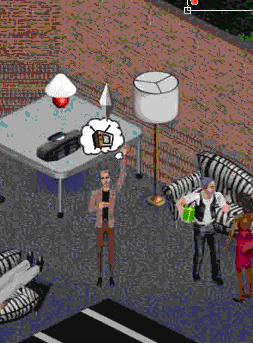


Chuck Klosterman talks about consciousness and our place in the uni…multiverse. He explains the multiverse and has answers from Brian Greene, an expert in the topic. (Who has a TED talk about the multiverse.)
After a few more pages, another big idea doesn’t matter again. He describes traveling at the speed of light but manages to make it seem slow. It would take lifetimes to get to the edge of the galaxy. Forget about the edge of the universe. Even if we confirmed we were in a multiverse it wouldn’t matter.
Ok, another idea: what if we’re in a computer simulation? This was popularized by The New York Times in 2007 and it comes up once in a while when people like Elon Musk are asked about it. Musk talked about the advance from two rectangles and a dot to online multiplayer games in 40 years:
“If you assume any rate of improvement at all, then the games will become indistinguishable from reality, just indistinguishable.
“Either we’re going to create simulations that are indistinguishable from reality, or civilization will cease to exist. Those are the two options.”
So what if we’re right about this? You might be able to stop at “So what.” Multiverse or computer simulation, we still couldn’t interact outside of it. It doesn’t affect day to day life.
Such a realization wouldn’t be like Jim Carrey’s character’s recognition of his plight in The Truman Show, because there would be no physical boundary to hit; it would be more like playing Donkey Kong and suddenly seeing Mario turn toward the front of the monitor in order to say, “I know what’s going on here.”
He can’t step out. We can’t stick a crane game arm in there to pull Mario into reality. If we verified that we live in The Sims 28728, the person playing can’t pull us out and into base reality.
So it might not matter. And that’s okay because it’s still fun to think about. Klosterman establishes that and describes some approaches to life, including testing boundaries like it’s GTA.
Klosterman seems to be a magnitude smarter than me. And he interviewed people he’d describe as a magnitude smarter than himself. And he contests that even they probably don’t have it all sorted out.
And that’s fine and leaves some fun things to think through. But What if We’re Wrong has Klosterman guiding readers through these topics. Whether it’s all real or not, I enjoyed the journey.